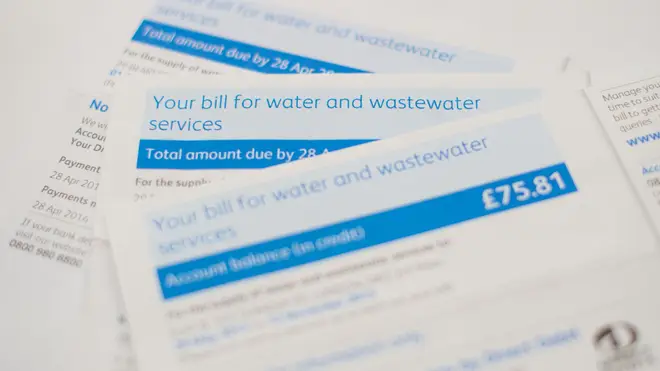
Lewis Goodall 10am - 12pm
25 May 2022, 14:54

Ofwat has issued new guidelines.
The water regulator has called on suppliers to do more to help customers facing debt as it found just over half believe they will struggle to pay a utility bill over the coming year.
Under Ofwat’s new guidelines, firms must offer more flexible payment options for customers on irregular incomes and zero hours contracts, “talk sensitively” with customers to resolve problems without needing to recover debt, and find those who are struggling and offer them support.
Just over half of water bill payers believe they will struggle to pay a utility bill over the coming year, rising to seven in 10 if there are children in the household, research carried out by the regulator this year found.
Ofwat has called on companies to work with each other and consumer and debt advice organisations to reach customers that are struggling and offer help including a social tariff.
To protect households, we've published new guidelines for water companies to help customers across England and Wales pay bills, get help and repay debts.
Find out more about #Payingfair : https://t.co/jFjilOy5FO pic.twitter.com/KlCZbjVgf3
— Ofwat (@Ofwat) May 25, 2022
Ofwat senior director Emma Kelso said: “Many customers were struggling before the pandemic and the current cost of living pressures are squeezing household incomes even further.
“Our new guidelines are clear in what water companies can do to support customers. They can be making bills easier to understand and pay, helping those that need further support, and go further to help people repay their debt if they fall behind.
“By helping customers avoid falling into a debt spiral, companies can also help reduce bad debts and keep bills lower for everyone.”
Emma Clancy, chief executive of the Consumer Council for Water, said: “These changes have the potential to bolster support for customers in or on the cusp of debt with their water company and we’re really pleased they align with some of the key recommendations from our independent review of water affordability.
“Putting more onus on companies to reach out to customers to see if they need support is also a vital step towards overcoming the barriers to existing help, including low awareness and a lack of trust.”